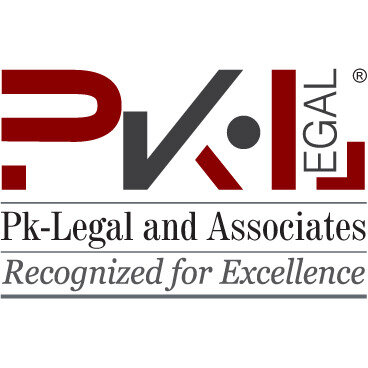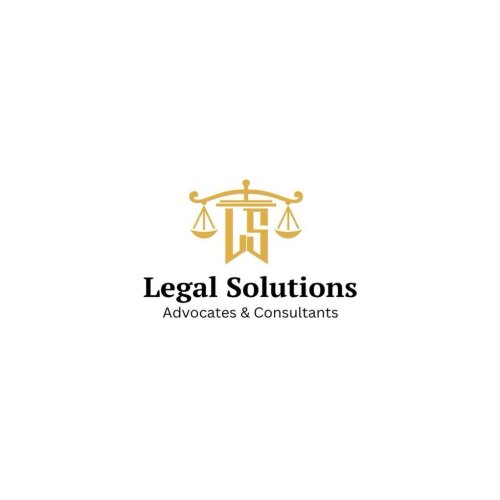Best Energy Regulatory Law Lawyers in Rawalpindi
Share your needs with us, get contacted by law firms.
Free. Takes 2 min.
List of the best lawyers in Rawalpindi, Pakistan
About Energy Regulatory Law in Rawalpindi, Pakistan
Energy Regulatory Law in Rawalpindi, Pakistan refers to the set of legal principles and regulations that govern the generation, transmission, distribution, and sale of energy resources - primarily electricity, natural gas, and oil. These laws are influenced by federal legislation, administered by national regulatory bodies such as the National Electric Power Regulatory Authority (NEPRA) and the Oil and Gas Regulatory Authority (OGRA), as well as local authorities. The primary aim is to balance the interests of consumers, government, and private players in the energy sector, ensuring reliable supply, fair pricing, and compliance with national policies.
Why You May Need a Lawyer
There are numerous circumstances in which individuals or businesses in Rawalpindi may require legal help in the area of Energy Regulatory Law. Common reasons include:
- Disputes with energy suppliers or utility companies over billing, tariffs, or service interruptions
- Obtaining licenses or permits for energy generation, distribution, or related infrastructure
- Compliance with safety standards, environmental regulations, or technical codes
- Negotiating Power Purchase Agreements (PPAs) or other energy contracts
- Seeking compensation or enforcement after outages, damages, or accidents
- Challenging regulatory penalties or adverse decisions by NEPRA, OGRA, or local regulators
- Advising on renewable energy projects, including solar and wind power installations
A lawyer can provide critical advice on complicated regulatory requirements, represent clients in hearings or court, and help safeguard their legal and financial interests.
Local Laws Overview
Energy Regulatory Law in Rawalpindi complies with the broader legal framework of Pakistan, yet some provisions are implemented or overseen at the local level. Key aspects include:
- Licensing and Operations: Any entity involved in electricity generation, transmission, or distribution must obtain appropriate licenses from NEPRA. Commercial gas operations require OGRA approval.
- Tariff Setting: Energy prices and tariffs are regulated, with input from both national and provincial stakeholders. NEPRA holds public hearings and consults on price adjustments.
- Safety and Technical Standards: Operators must comply with safety codes, technical guidelines, and environmental regulations, including those set by the Pakistan Environmental Protection Agency.
- Consumer Rights: There are grievance redressal mechanisms for consumers to lodge complaints about unfair practices, overbilling, or service deficiencies, which may lead to regulatory investigations or fines.
- Private and Renewable Projects: Local and provincial policies continue to encourage private-sector and renewable energy investments through various incentives, but subject to compliance and oversight.
It is essential for all stakeholders in Rawalpindi’s energy sector to understand both national mandates and local enforcement practices to ensure compliance and effective operation.
Frequently Asked Questions
What is the primary regulatory authority for electricity in Rawalpindi?
NEPRA - National Electric Power Regulatory Authority - is the key body overseeing electricity regulation throughout Pakistan, including Rawalpindi.
How can I file a complaint about overbilling or poor service?
Consumers can file complaints directly with their utility provider and, if unresolved, escalate to NEPRA, OGRA, or the local Consumer Protection Council. Legal assistance may help prepare and pursue the complaint.
Do I need a special permit to install solar panels at my property?
Small residential solar systems may only require approval from the local power distribution company, but larger or commercial installations need formal licensing and adherence to specific technical and safety standards.
What are the penalties for violating energy regulations?
Penalties may include fines, suspension or cancellation of licenses, or even prosecution for repeated or serious violations of energy laws and safety regulations.
Are there incentives for renewable energy projects in Rawalpindi?
Yes, the government offers various incentives, such as tax credits or reduced tariffs, for renewable energy investments - though these are subject to changing policies and regulatory approval.
What is a Power Purchase Agreement (PPA) and why is it important?
A PPA is a contract between the energy generator and the purchaser (often a utility company) outlining terms for selling and buying electricity. It sets the price, delivery, duration, and other crucial obligations.
Can businesses directly negotiate with utility companies?
Yes, but these negotiations often require legal expertise, especially for large-scale supply, to ensure compliance and protect the business’s interests.
What environmental considerations are relevant to energy projects?
Projects must comply with environmental protection laws regarding emissions, waste disposal, and land use. Environmental Impact Assessments may be required before approval.
How long does it take to secure an energy sector license?
The duration depends on the type of license and project complexity. Simple applications might be processed within weeks, while larger, more complex projects may take several months.
If I disagree with a regulatory authority's decision, can I appeal?
Yes, most decisions by NEPRA or OGRA can be appealed through specified legal channels. A lawyer can help prepare your appeal and represent your case.
Additional Resources
Here are helpful resources and organizations for those seeking information or support in Energy Regulatory Law:
- NEPRA (National Electric Power Regulatory Authority)
- OGRA (Oil and Gas Regulatory Authority)
- Rawalpindi Chamber of Commerce and Industry
- Pakistan Environmental Protection Agency
- Consumer Protection Council, Punjab
- Federation of Pakistan Chambers of Commerce and Industry (FPCCI)
- Local law firms specializing in energy and regulatory law
Next Steps
If you need legal assistance in Energy Regulatory Law in Rawalpindi, begin by identifying your specific issue, such as a dispute, permit application, or regulatory compliance matter. Gather all relevant documents and evidence. Reach out to a qualified lawyer experienced in energy law for a consultation. Bring your questions and documents to the first meeting so your lawyer can accurately assess your situation and advise you on the best course of action. Engaging a legal specialist will help you navigate complex regulations, protect your interests, and achieve a positive outcome.
Lawzana helps you find the best lawyers and law firms in Rawalpindi through a curated and pre-screened list of qualified legal professionals. Our platform offers rankings and detailed profiles of attorneys and law firms, allowing you to compare based on practice areas, including Energy Regulatory Law, experience, and client feedback.
Each profile includes a description of the firm's areas of practice, client reviews, team members and partners, year of establishment, spoken languages, office locations, contact information, social media presence, and any published articles or resources. Most firms on our platform speak English and are experienced in both local and international legal matters.
Get a quote from top-rated law firms in Rawalpindi, Pakistan — quickly, securely, and without unnecessary hassle.
Disclaimer:
The information provided on this page is for general informational purposes only and does not constitute legal advice. While we strive to ensure the accuracy and relevance of the content, legal information may change over time, and interpretations of the law can vary. You should always consult with a qualified legal professional for advice specific to your situation.
We disclaim all liability for actions taken or not taken based on the content of this page. If you believe any information is incorrect or outdated, please contact us, and we will review and update it where appropriate.












